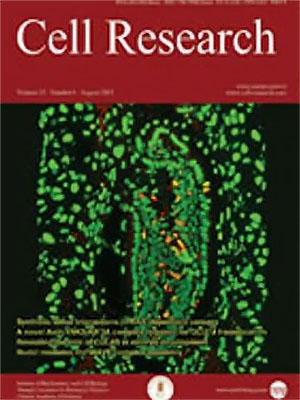
Volume 11, No 2, Jun 2001
ISSN: 1001-0602
EISSN: 1748-7838 2018
impact factor 17.848*
(Clarivate Analytics, 2019)
Volume 11 Issue 2, June 2001: 107-115
ORIGINAL ARTICLES
Blockage of IGF-1R signaling sensitizes urinary bladder cancer cells to mitomycin-mediated cytotoxicity
SUN Hong Zhi1,*, Shu Fang WU2,*, Zeng Hong TU2,**
1Department of Biological Regulation, Weizmann Institute of Science, Rehovot 76100, Israel. Tel: 00972-8-9343182. E-mail: hongzhi@wicc.weizmann.ac.il 7nbsp; Fax: 00972-8-9344116
2State Key Laboratory of Drug Research, Shanghai Institute of Materia Medica, Chinese Academy of Sciences, 294 Taiyuan Road, Shanghai 200031, China
Correspondence:
A major problem which is poorly understood in the management of bladder cancer is low sensitivity to chemotherapy and high recurrence after transurethral resection. Insulin-like growth factor 1 receptor (IGF-1R) signaling plays a very important role in progression, invasion and metastasis of bladder cancer cells. In this study, we investigated whether IGF-1R was involved in the growth stimulating activity and drug resistance of bladder cancer cells. The results showed: The mRNAs of IGF-1, IGF-2 and IGF-1R were strongly expressed in serum-free cultured T24 cell line, whereas normal urothelial cells did not express these factors/receptors or only in trace levels; T24 cell responded far better to growth stimulation by IGF-1 than did normal urothelial cells; blockage of IGF1R by antisense oligodeoxynucleotide (ODN) significantly inhibited the growth of T24 cell and enhanced sensitivity and apoptosis of T24 cells to mitomycin (MMC). These results suggested that blockage of IGF-IR signaling might potentially contribute to the treatment of bladder cancer cells which are insensitive to chemotherapy.
FULL TEXT | PDF
Browse 2588


